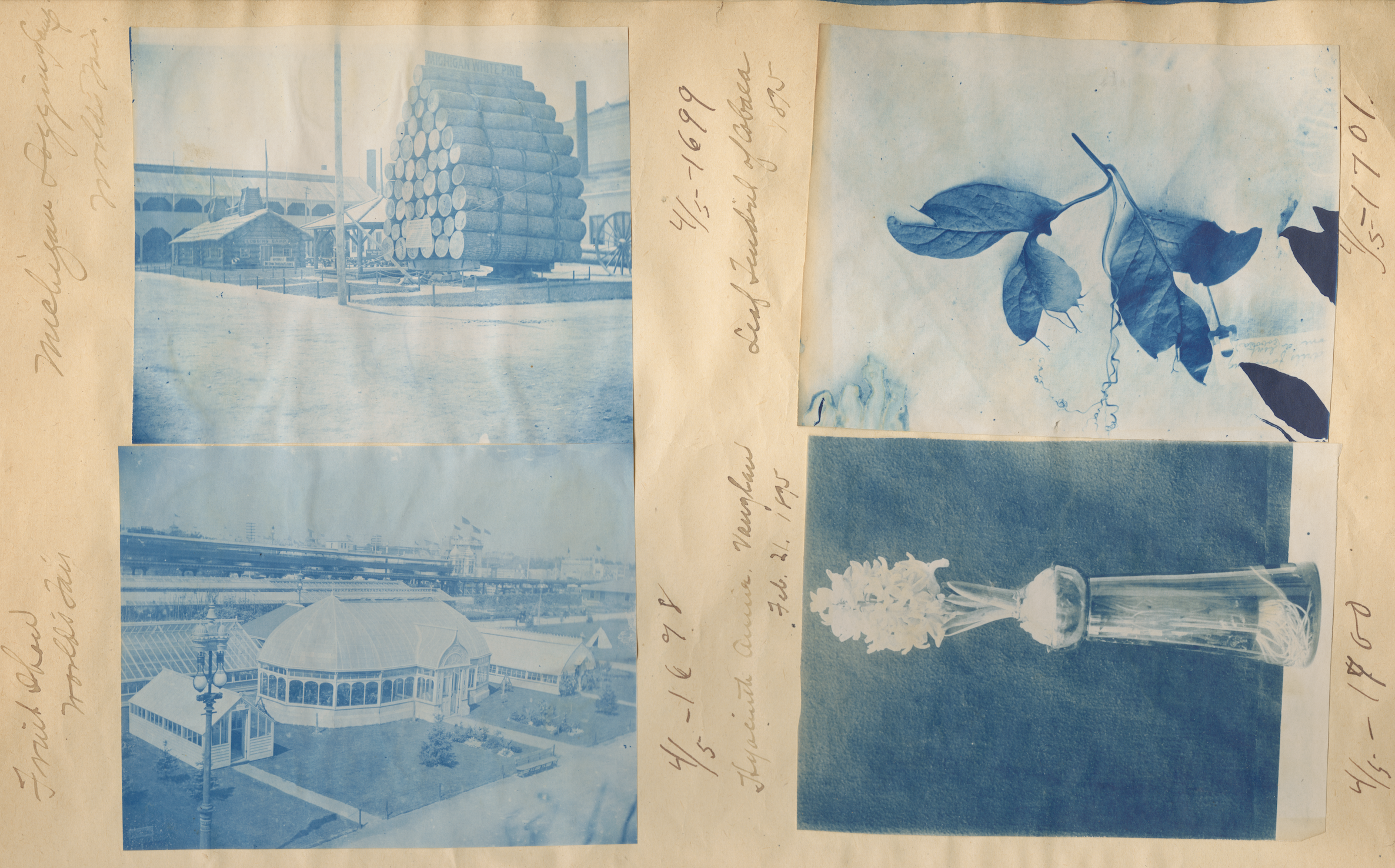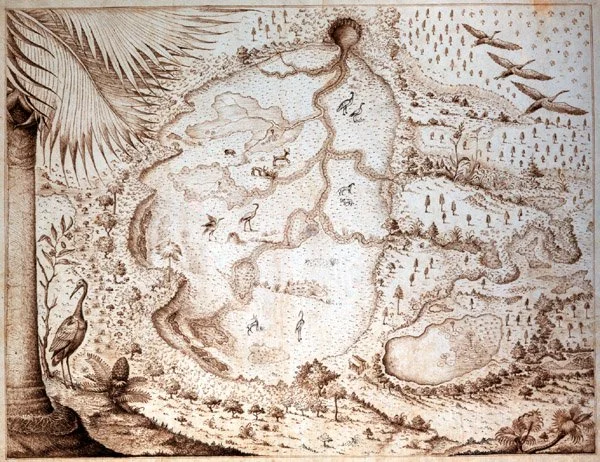teaching experience & philosophy
Since 2015, I have taught history courses at Cornell University, Columbia University, Pratt Institute, Montana State University, and the Museum of the City of New York. I have experience teaching U.S. history (social, political, and survey courses), environmental history, African American history, public history, and interdisciplinary landscape studies.
As an educator, I prioritize experiential, student-centered learning that empowers students to take part in historical inquiry. In practice, this means giving students hands-on opportunities to engage with archival objects and form their own research questions, even in introductory courses.
Two cyanotype images from the 1893 World's Columbian Exposition (left), and two cyanotype images of plants (right) in a Liberty Hyde Bailey photo album. Source: Liberty Hyde Bailey Papers, Division of Rare and Manuscript Collections, Cornell University Library.
Course offerings
Thomas Cole, The Oxbow, 1836
HIST/shum 2369: Race, the nation, and american outdoor recreation (Fall 2025, Cornell)
This class explores how access to the outdoors has been impacted by social inequalities related to race, class, and gender throughout U.S. history. The idea of “the outdoors” and its synonyms (whether “wilderness” or “nature”) has sustained lasting cultural resonance in the United States. Since the nineteenth century’s development of American Romanticism, “nature”—or the idea of a landscape not manipulated by humans—has become a powerful cultural symbol and one of the nation’s most cherished attributes. However, this course examines how this strong reverence for natural places in the United States has been overlaid by racist ideologies.
See our collective class project: “A History of the Outdoors in Ithaca, New York” on HistoryPin.
Photo credit: Rodrigo Abd, AP Source: National Council on Public History
HIST/shum 4243: public history in place: Interpreting the environment (Spring 2026, Cornell)
This course intertwines the fields of public history and environmental history. Together we will consider what it means to craft environmental histories rooted in particular places. We will also contemplate how we can narrate these complex (and sometimes controversial) stories for the public in an era of ongoing climate crisis. To accomplish this, this class moves beyond the traditional disciplinary confines of academic history. We will examine museums, archival collections, parks, monuments, gardens, podcasts, op-eds, maps, and more as important sites of inquiry, memory, and knowledge production for environmental historians. We will explore theories, methods, and exhibits/projects related to both public and environmental history. We will think critically about how to craft our own environmental history narratives for a “public” audience.
This course will also interrogate what it means to narrate place-based public histories by incorporating site visits to a botanic garden, an art museum, and an archival repository. In collaboration with staff at each location, students will assess and discuss what current environmental history narratives (whether explicit or implicit) exist at these public-facing locations. We will also creatively imagine, discuss, and–in some cases–implement new modalities of public environmental history through a series of individual and group projects.
William Bartram, “Great Alachua Swamp,” 1765.
Landscape Studies II: Indigeneity (spring 2024, pratt)
This course was a required graduate seminar for Pratt’s MLA program. The interdisciplinary class intertwined the fields of environmental history and landscape studies. Much of the course content in “Landscape Studies II”–including a lecture on “Plants and Empire” and readings such as Wendy Makoons Geniusz’s Our Knowledge Is Not Primitive: Decolonizing Botanical Anishinaabe Teachings–were informed by my commitment to placing groups who have been historically marginalized at the center of the historical narrative.
For their final projects, students selected an environmental case study site in New York City, which included parks, beaches, a highway, a polluted canal, and a former garbage dump. Drawing from this archival research, students wrote a formal essay paired with an ArcGIS StoryMap: a digital tool that geolocated historical sources to the students’ assigned case study site.



